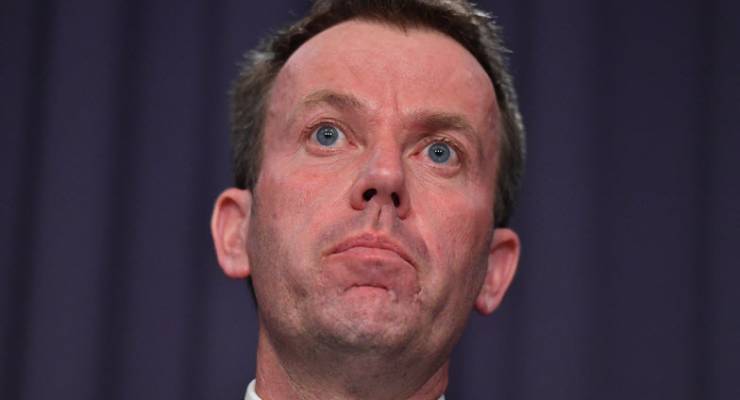
This week Crikey readers were united in their opposition to Education Minister Dan Tehan’s proposed university fee changes, but divided in their opinions on the proposed ban of TikTok and WeChat.
On university fees:
Angela Giblin writes: I am appalled by Dan Tehan’s proposals regarding Australian universities. My arts degree at Sydney Uni opened the door to the rest of my life, and I still benefit from that formative period of study, which, among many other things, introduced me to critical thought. What’s more, I’ve never involuntarily been without a job — in despite of some of the current well-worn clichés about humanities study.
However people like Dan have never listened to, or been interested in, people like me. I’ve been a musician all my working life, and I don’t regret a moment of it. On the contrary, I think I’m very fortunate to have been able to make a living as a muso.
The policies of the present federal government on the arts and on university education are positively barbaric. I am pessimistic about the future of Australia, not only because of the practices and policies of the present national government in almost every area, but because so many Australians seem to be so blissfully unaware of what is being done to them. I feel very sorry for all the young Australians who will have to live with the consequences of these terrible policies.
Robert Owen writes: As a graduate in mathematics I can say that a maths degree is worth less than an arts degree (sorry arts graduates). Physics and chemistry are also useless degrees in getting jobs unless you move outside your field where any degree would carry the same weight. Chemical engineering was also useless, although this may have changed since I graduated in 1972. The government saying we need more STEM graduates shows that they do not understand the fine detail of employability by subject studied.
On TikTok:
Daniel Saks writes: Without wishing at all to be seen to be supporting anything Donald Trump does, it’s not a matter of siding with him when it comes to Chinese apps and technology generally. It’s whether banning the likes of Huawei and TikTok is the right thing to do to protect Australian privacy and sovereignty.
It’s utterly naive to suggest that these are benign companies with no connection to the Chinese Communist Party (CCP) and that their collection of data is somehow comparable to data collected by US companies. The CCP had demonstrated that it is a despotic, ruthless regime. Its ambition to control or have powerful influence over other countries is beyond question. To give it even a sniff of intrusion into our communications infrastructure would be a dereliction of the government’s duty to its citizens.
Some might argue that that’s not too dissimilar from the history of US involvement in other countries and that data stored in US companies can be problematic for us all, but there’s a difference: there is some measure of the rule of law in the US. In China there is none. The law is whatever the CCP decides it is at any given moment to suit whatever circumstances it wants to control. If there are issues about the use of data collected, there is no capacity to address it in China … At least in the US, there are avenues, however tortured, for issues to be investigated.
I sincerely hope that the Australian government maintains its strong stand against Huawei and TikTok. And I hope that in the very near future they turn their attention to Zoom.
Simon Wilde writes: Ban TikTok and WeChat? What the hell is this? China? Aren’t we meant to be better than that? Having lived in China I’m well aware of the limitations of the Chinese internet. I use WeChat and expect that I’m being bugged. If I don’t like it, I don’t have to use it. So why ban it? Incidentally banning WeChat will make it impossible for Chinese residents in Australia to communicate with their families back home. How is this at all OK?
Let us know your thoughts by writing to letters@crikey.com.au. Please include your full name to be considered for publication in this column.







China makes it clear to all that Intertube traffic is monitored.
Unlike this country, and other soi disant free western nations, which do it in secret.
By legislation, supported by gutless “Labor”.
Back to an earlier Australia, with intellectuals and artists regarded as freakish aberrations. The Holden cars are gone, but the Federal government presumably imagines us all obediently concerned with football, meat pies and kangaroos in lieu.